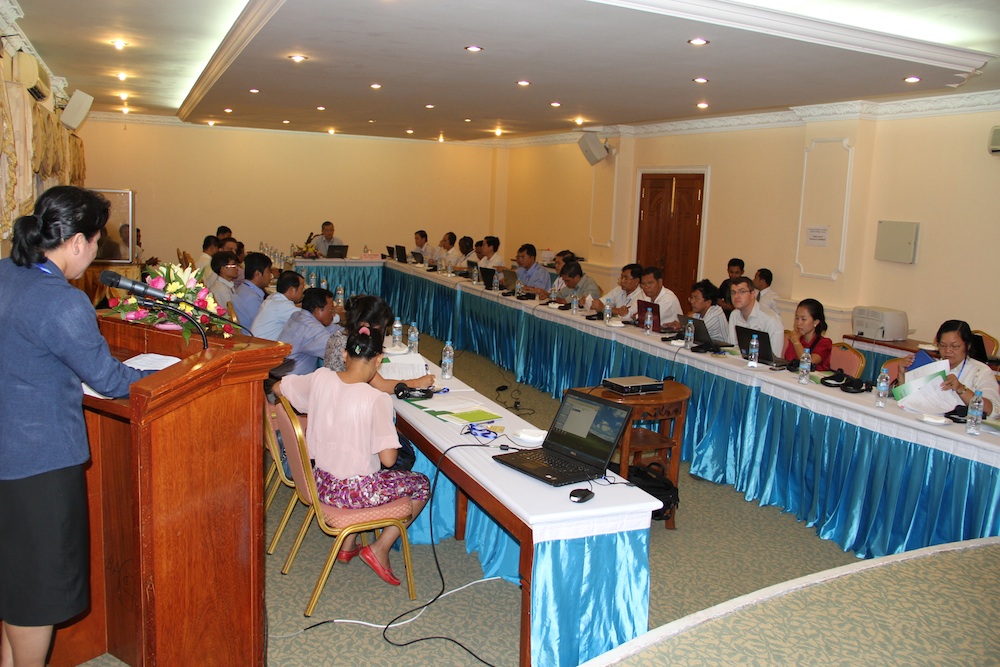 Nine line Ministries of the National Climate Change Committee validated eight strategic objectives of the Climate Change Strategic Plan during a two-day workshop in Sihanoukville on the 9-10th May 2013. The key line ministries also engaged in a range of highly participative discussions on the next steps of the CCSP development, including the drafting of climate change action plans.
Nine line Ministries of the National Climate Change Committee validated eight strategic objectives of the Climate Change Strategic Plan during a two-day workshop in Sihanoukville on the 9-10th May 2013. The key line ministries also engaged in a range of highly participative discussions on the next steps of the CCSP development, including the drafting of climate change action plans.
The event was organised by the Climate Change Department of the Ministry of Environment with the Cambodia Climate Change Alliance. It marks a key milestone in the strategic design process aiming to mainstream of climate change responses in the next strategic development plan of the Royal Government of Cambodia.
Please read on or click on the following link to find and download the presentations and documents related to this workshop in our document Library.
By aligning the various Strategic Plans, the CCSP provides a strong platform to mainstream climate change in the next national strategic development plan of the country. The strategic objectives were developed in a participative process, drawing from the detailed strategic plans of each of the nine line ministries. The eight strategic objectives validated during the workshop are:
1. to promote the climate resilience through improving food security, water security and energy security
2. Reduce sector, regional and gender vulnerability to climate change impacts
3. Ensure climate resilience of critical eco-systems (Great Lake, Mekong River, Coastal ecosystems, Highlands etc.), biodiversity, protected areas and cultural heritage
4. Develop policies, regulations, guidelines and management practices towards green growth and other low carbon developments.
5. Improve capacity, Knowledge and awareness for climate change response at different levels
6. Promote adaptive social protection and participatory approaches to reduce loss and damage
7. Strengthen institutions and coordination frameworks for climate change responses
8. Strengthen collaboration and active participation in regional and global climate change processes.
To engage the line ministries of the National Climate Change Committee in the next phases of the design process, a series of presentations were made on the national Monitoring and Evaluation Framework, with outlines and guidelines for the development of Action Plan. The presentations included preliminary indicators for measuring climate change response and also communication guidelines to ensure an aligned approach in knowledge and information management.
Participants said the event was very successful and enabled them to design concrete responses through the development of Action Plans.

